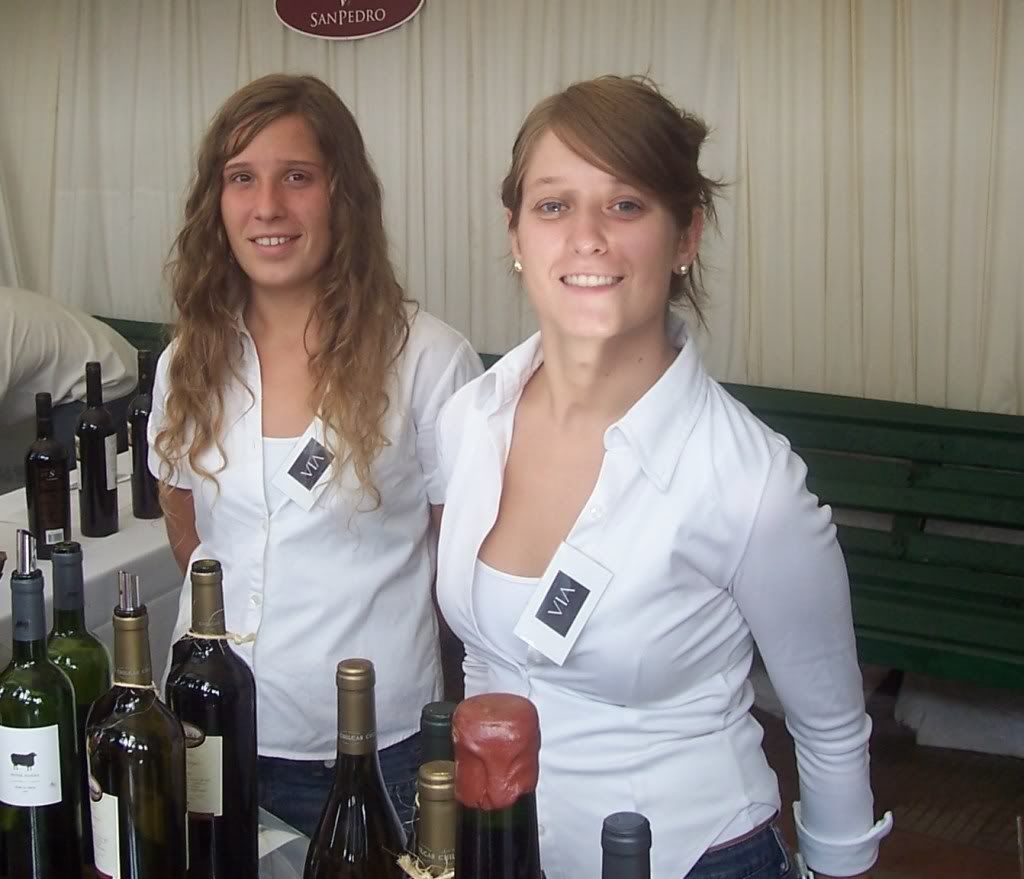Tuesday, April 22, 2008
Dick Stoll of Windfall Pond McClellanville, South Carolina
I heard this year that Dick Stoll died. He was a caretaker on my step-father's plantation down in coastal South Carolina. Windfall Pond hadn't been a real antebellum plantation--like nearby Hampton, Tibwin, and Kinloch--but we called it that anyway. The name 'plantation' seemed more genteel and aristocratic and the moniker 'farm' just didn't seem to fit.
If you met Dick for the first time you would think he was an unemployed alcoholic living on the dole. He looked rough and was red in the face from always being outdoors. But if his countenance was tough, his heart was big and his lifelong achievements were many. If you spent much time with him, like I did, you would walk away impressed with his skills. He knew how to farm and keep bees. He had worked at logging, tugboating, and even smuggling booze. Finally he held several patents. That so much could come from someone who at first glance seemed so poor and uneducated was difficult to fathom.
I was 12 years old when Dick first came to work at Windfall Pond. We had two houses there. One was the main house and the other a bunk house. My family and the members of the hunting club used those houses so there was no place for Dick to live until we bought a trailer home many months later. For the first six months or so Dick slept in the back of his pickup truck. He crawled in there in his greasy clothes and laid atop sacks of feed corn and fertilizer.
Windfall was a 200 acre place that my step-father bought to go duck hunting. About one-third of the proper was diked-in ponds, most of the rest was forest, and small sections were open and could be farmed. My step-father convinced 20 or so of his friends to join Windfall Pond and pay dues so that they could help pay the costs of keeping the club in working order. I never lived there full-time except for one memorable summer that I spent working in the fields and on the ponds with Dick Stoll. I decided to spend my summer at Windfall because I loved that part of the state and, being a college student, I had nothing else to do. By the end of the summer I had grown equally fond of Dick Stoll.
Dick always wore green or blue uniform type pants that he bought from Sears. He probably paid $3 for the shirt and maybe less for the pants. Today you would go to Walmart to buy such clothes but back then there was only a Sears in nearby Georgetown. Dick bought everything from the Sears catalogue, including honey bees. I remember driving to the catalogue store to pick up a queen bee that had been carefully shipped in a small box. The teenage girl behind the counter was so frightened she could not even speak as she handed over the box all the while keeping it at arm's length.
Dick's hair was gray and greasy. His face was deeply furrowed and perpetually burned by the steamy Carolina sun. His face turned upward in a manner that made him look like a Georgia bulldog. When he spoke it was with a deep baritone.
The mosquitoes were fierce at Windfall Pond. After all it was a duck hunting club surrounded by many acres of fertile breeding ground for mosquitoes. That is probably why Dick always wore long sleeved shirts and long pants even on the hottest days. To keep the mosquitoes at bay Dick would reach up and break off a branch from a pine tree. He would keep that branch in perpetual motion swoosh swoosh as he swatted away mosquitoes. At first we thought this silly but pine resin is sticky and smells strong to people--maybe bugs cannot stand it at all.
When you live in the Deep South and especially along the coast you learn the art of coping with mosquitoes and searing heat. In Charleston County, South Carolina the temperature does drop to freezing in the winter. But even then the weather always warms to 60 or 70 in the afternoon. The winter months are a brief respite from the steamy torpor of June, July, and August. On these hot days when the sun beams down with all her fury and the cicadas sing loudly it seems as if you can actually hear the heat. That is why in the South we drink our tea with ice'gallons at a time.
Mosquitoes and heat didn't seem to bother Dick too much nor did the solitude in which he lived. Like Henry David Thoreau of Walden Pond, Dick Stoll of Windfall Pond lived all alone and seemed to enjoy it immensely. Not being a man of letters, he didn't pass his time reading books like Thoreau did. Rather Dick would sit quietly contemplating the world around him with a keen eye on nature. Each day at 6:00 o'clock Dick would turn on the old television and watch channel 5 news from Charleston to get the weather and tide forecast. Like the clam or the crab this crusty old crustacean lived his life to the ebb and flow of the tides and the cycle of the moons.
My favorite time of the day was when Dick and I watched the news. I washed the dishes while he dug deep into his chest freezer for something to cook. The freezer was stuffed full with shrimp that we had caught in the ponds, venison shot in the woods, field peas that Dick had grown, and bacon that he bought at the general store. After we ate Dick would tell me stories about his childhood or talk about the work we had done that day.
During the day Dick did not idle. Rather he worked in the fields. Dick had no responsibilities other than making sure the locals did not rob Windfall Pond. My stepfather bought him a tractor and furnished him a house. He engaged in what is called 'truck farming' which means he grew fruits and vegetables that he could sell by the basket or even singly to people from the village. So instead of corn he grew potatoes, peanuts, watermelons, and strawberries. He did plant some soybeans but that was simply to feed the solitary pig that he owned. The pig lived alone just like Dick did.
Dick's skills in the garden were remarkable, especially given the poor soil in which he had to work. The ground there is sandy and without much loamy dirt. Worse, the spring tides and massive storms bring saltwater spilling over the dikes. To control the duck ponds the entire 200-acre tract was surrounded by a series of dikes, ditches, and floodgates. But even this could not always keep the ocean at bay.
Still Dick managed to grow enormous red ripe strawberries in spite of the salt and the sand. These he sold to people from the little town of McClellanville'population 300. They would drive 5 miles down the dirt Dupree road and along the ' mile driveway to the field where Dick would be working. Or they would pull up to his trailer and blow the horn. I have often remarked that this is how we beckon one another in the rural South. The klaxon takes the place of the doorbell or knocker.
Dick surrounded each of his strawberry plants with a tuft of pine straw from the forest. When he did this I wondered if that was how strawberries got their name. The straw kept the ripe berries off the dirt and kept them from developing those mushy spots that ruin the symmetry of the perfect fruit. Plus the pungent odor repelled certain bugs'it was like having a cedar-lined closet to keep moths at bay.
The pine straw of the Southern pine forest makes the woods quiet and as cozy as a carpet. It is a natural cover that snuffs out most small plants keeping the forest floor clear and makes the woods a pleasure to walk. Many of these trees are planted and then harvested every 20 years or so. They are grown like crops. You can always tell a planted pine forest as you zip by in the car because the waves of vine-tangled trees are lined up in neat rows.
Dick's skill with horticulture extended to the watermelon. When Dick planted watermelons he did not plant them in a field. There was no bushhog, no burning, no tilling of any sort. Rather Dick planted melons on the neighbor's land in an area where the pine trees had been clear cut a few years ago. I am still amazed that where stumps, sticky briars, and rattlesnakes lived Dick managed to grow giant, sweet watermelons and sell them for a dollar apiece. You would not have thought that such ground could grow even a blackberry vine.
I am not sure if Dick ever went to high school. I think he probably quit school around the 6th grade. He grew up in the Depression he and none of his neighbors could find work. It was around that time that the state of South Carolina bought the great Francis Marion forest for pennies per acre. This several hundred thousand acre woods surrounds McClellanville and comes close to Windfall Pond. Dick often spoke of that purchase as a crime'he said the state had stole it from the owners who could not afford to pay the taxes.
It was during the Depression that Dick worked felling giant Cypress trees in the Santee swamp. The waterborne Cypress tree is a prehistoric looking creature. It has scales like a fish and actually has knees that stick up out of the water. Folks used to cut down cypress trees and make them into a trampoline of sorts called a 'jogling board'. It has been many years since I have seen one of those.
I could not imagine working as Dick did, waist deep in the black Santee water, swatting away mosquitoes, and working one end of a two-man saw. With neither gasoline nor motor they sawed the trees down by hand. That Dick could work this hard even in his old age was one of the reasons I admired him. When I worked beside him in the fields or on the ponds I found he was stronger than me and could work longer. He taught me that one way to tolerate the Carolina heat and humidity was to wear long sleeves and not drink too much water, tea, or soda when working outdoors. This runs contrary to conventional wisdom but after adopting his technique I would say that Dick was right.
After the Depression eased, Dick worked on a tugboat. I think he did not go to World War II because he was working in a trade deemed necessary by the local draft board. Dick worked as a mate, deckhand, and then captain on tugboats that plied the Intracostal waterway between Georgetown, Charleston, and Savannah. He hauled trees and paper to and from the massive International Paper mill in Georgetown on the Sampit River.
Some people said that Dick used his cloistered position hidden far from town and with deep water access to smuggle marijuana. Windfall Pond certainly could provide a convenient anchorage where smugglers could off-load their cargo. No one lived within 5 miles of there. The time was right: in the 1970's most people had known someone who had been involved in this illicit trade and had their boat seized. Some friends of mine found a bale of pot that floated onto Litchfield Beach. I doubt that Dick was involved, but he allowed such rumors to spread when he talked about his days smuggling booze during the years of prohibition. He said that freighters from Canada would sail near the Carolina coast and there be met by smaller craft who whisked away the valuable cargo. Dick said that he drove one of these smaller boats. He told me stories about navigating the shallow creeks and rivers in the dark night as he met the smugglers and hid from the law.
When I was a teenager and young college student in the 1970's and 1980's, blacks in Georgetown and Charleston counties lived in de facto segregation apart from the towns in little villages like Chopee or South Santee. They are no longer compelled to do so but having grown up there many choose to stay.
Dick had many acquaintances in the black village of South Santee. I would not say they were his friends, but rather were people with whom he traded. Often Dick would catch a mess of mullet fish and then peddle them in the village. (Mullet is a vegetarian fish with a strong-smelling flesh.) Dick also hired laborers to work on the floodgates at Windfall Pond or to work in the fields. Once Dick and I drove to a farmer's house and bought a small pig for $25. Then we butchered it, boiled its hair off, and barbecued it for 12 hours at low temperature. I made friends with one of the blacks in South Santee: an elderly gentleman who was fond of straw hats. Each day he would drive out to Windfall and paddle my boat while I tossed the cast net to catch mullet. But Dick didn't want this black fellow hanging around Windfall lest he start asking for handouts and ran him off one day. I have to admit he became a gadfly who showed up without invitation much to my annoyance. And as Dick predicted he always wanted to borrow something or have it for free.
The blacks who live in South Santee are said to speak a dialect called Gullah or Geeche. To me it is melodic and perhaps unintelligible to the outside ear. Linguists have written about the Gullah and Geeche languages. You can find their books in the South Carolina library at the university in Columbia. The writer Pat Conroy has described this culture in depth in his memoir 'The Water is Wide'.
On occasion Dick would get a thirst for booze and drive to the liquor store on highway 17. He was not an alcoholic but would sometimes fall under the influence of an old drunk, Robert, who occasionally worked on the farm. Dick and Robert would buy pint-sized bottles of whisky or bourbon and then go on a drinking binge. When Robert started to drink he often stayed drunk for 5 or 10 days in a row. He would only sober up when he ran out of money. Then he would walk 10 miles to Windfall Pond to beg Dick for more work. When he was sober he worked very hard. When he was drunk he didn't show up for work at all.
I did not like Dick when he was drinking. His pleasant face would take on the glassy eyed demeanor of one who has become maudlin. He and Robert would sit there and commiserate with each other and usually end up in tears. When drunk Dick would make nasty comments about women'such bodily humor I have never liked--but then he would sober up and return to his gentle self in a day or two. Then he would not touch any liquor for several months.
Sometimes Dick's truck would break down. It was quite funny to see him drive to the liquor store on his old tractor. At 10 miles an hour that trip was an all day venture.
Dick was always picking up stray pets or even people and providing them with a temporary home in his trailer. One guy starting coming around until Dick had to run him off. He ran up the phone bill by several hundred dollars and became verbally violent once when playing poker. Everything he said was a lie even when he need not lie. He claimed that he had a shrimp boat which was seized because he had smuggled Cubans into Florida during the Mariel boat lift.
Other hangers-on of Dick's were less malicious. He had two or three dogs. They were the ugliest creatures you ever saw. They had neither pedigree nor papers but were a melange of muts from every possible breed. Dick made sure they never went hungry. They repaid him in kind with loyalty, like Lassie.
Once Dick found a bunch of baby Mallard ducks whose mother must have been eaten by one of the many alligators there. Dick raised these gentle creatures to adulthood. I think I saw him cry when the runt of the litter died after only a few days. The survivors thought Dick was their mother, it seems, because they followed him around wherever he went. It was just like that movie where a gaggle of geese follows the little girl who raised them.
Dick also kept bees in hives set atop old tires about 100 feet from his trailer. He said he scooped up one of the hives from a tree in the forest. Wild bees would sometimes form a giant wriggling ball which could be plucked from a tree by hand. All you need for a thriving colony is a queen. She kept the wayward worker bees together. I have friends at the other end of the state who keep bees. They adorn spaceman-like suits and use smoke bombs when they go near the hives. Dick has neither space suit nor smoke bomb but just walks up to the hive and robs the bees of their honey when the time is right. He rarely gets stung. Perhaps the bees see him as their benevolent master and leave him alone.
Dick's knowledge of insects of all kinds led him to invent a device to catch the California fruit fly. No one of us believed him when he said he had patented the device. But I believed him when he showed me the patent paperwork. This might have gone unnoticed by anyone but at that time the fruit fly was laying waste to the vineyards and orchards of California. Like some modern day phyloxera (a grape-killing fungus which devastated Europe 100 years ago) this menace made national news every day. Dick began to collect royalties from his inventions. These he salted away in Mason jars. He had no trust of banks.
Dick was more miserly than John Rockefeller. He had few expenses and never splurged on anything except the occasional drinking binge. The village folks believe that Dick hid money in hollow trees or buried it in the ground. We were always worried that someone would come to Windfall and knock him over the head for his cash. In his forgetful old age he probably left some money buried in the ground. Probably some trespasser is out there today foraging for this cash.
I lost touch with Dick Stoll and Windfall Pond when my step-father and mother divorced right after I graduated from college in 1984. My brother, Andy, still went there from time to time but I moved away to Washington, D.C. Andy said that in the last few years of Dick's life he grew more irritable and difficult to get along with. The members of the hunting club began to circulate malicious tales of his thievery and drunkenness. These married fellows with their mistresses were no doubt hostile Dick always being there when they showed up with their girl friends. The club members never grew to admire Dick's knowledge of nature and to envy the peaceful life he lived among the Live Oak trees, Spanish Moss, and Myrtle bushes of Windfall Pond. Dick one day drifted away from Windfall Pond. Like some old dog he crawled off to die somewhere'I am not sure where he died.
Subscribe to:
Post Comments (Atom)









2 comments:
Hi, I was just reading about Virginia wineries and wound up here. I do remember Dick form the duck plantation. He had skin like leather and when the mosquitoes attacted he didn't even bat them away. He always seemed to be lurking aroung when we were there. He saw me undress once through the window. I had nightmares about that for awhile. I loved the adventures we had there and the beauty of the place. I was able to live out my Witch of Blackbird Pond fantasies. And eat oysters... which I don't like.
The Tiller family of Georgetown now own Windfall My son and 2 grandchildren have wonderful pictures from duck hunts out there. I think my grandson, who is 17, had a Christmas picture taken in front of the old red tractor when he was 1 yr. old. I'll try to send the picture. The rice fields have been planted for waterfowl, occasionally, over the years. Imagine all of the same experiences being repeated for new owners, of recent generations. Life goes on.
Ann Tiller, Mount Pleasant, SC
Post a Comment